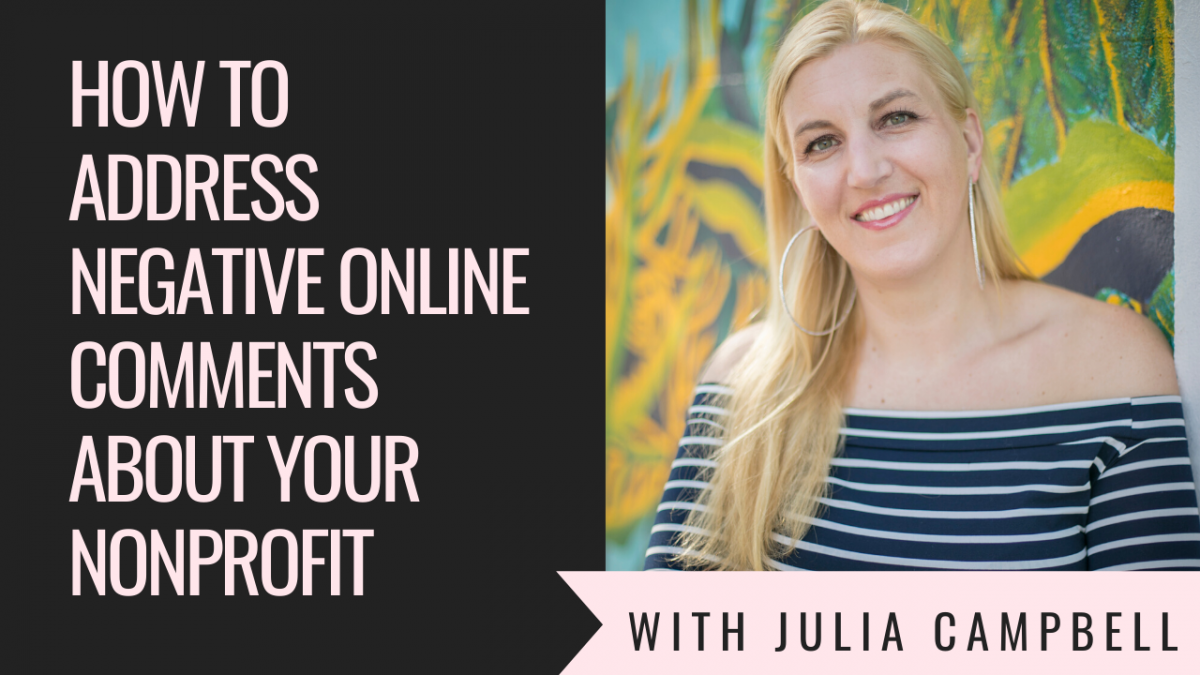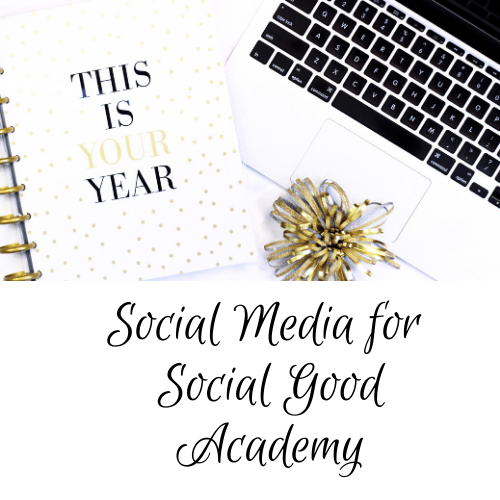Addressing negative online comments about your nonprofit – something that every single nonprofit social media manager has had to deal with at one point or another.
This topic comes up in the Nonprofit Social Media Storytelling group, and it’s certainly a question that I receive frequently:
How do we deal with negative online comments made on social media about our nonprofit? Do we have to address them or can we just delete them?
The short answer to dealing with negativity online?
Yes, you have to address the comments, publicly.
No, you can’t just delete (all of) them.
Before I get into the specific tips, I encourage you to remember:
- The reality is that many of you won’t have to deal with this on an overwhelming basis. A negative comment here and there is normal.
- Many people just want to be heard, or they are having a bad day.
- Intention can be taken wildly out of context when a comment is made online, and you can’t see or hear the person making it.
- I believe that the majority of us are good people, coming from a well-meaning place.
All of that said, you see a negative online comment about your nonprofit – what are the steps you can take to address it?
Enrollment is open for Social Media for Social Good Academy!
This is my brand new 6 week live training program to level up your social media.
Designed for busy nonprofit social media managers, just like you!
1) Refer back to your external social media policy.
All nonprofits need to create two types of social media use policies.
One is Internal (for paid staff, volunteers, interns) and External (general public online community) policies.
The Internal policy is for people who represent your organization, whether directly or indirectly – staff, volunteers, Board members, and the like. I always suggest that this policy should be just as much about what’s encouraged as what is discouraged. (More on this in a future post.)
The External policy is public-facing and clearly outlines what you will not tolerate posted on your social media accounts.
Here is an example that I worked on with a client:
Welcome to the official Facebook fan page for MetroWest Nonprofit Network (MWNN)!
Here we will share news about our workshops and events, as well as updates about local and regional nonprofit resources, funding sources, photos, videos, interesting stories and articles.
We want to keep our Facebook page an open forum, but we are also a “family friendly” page, so please keep comments and wall posts clean. We want you to tell us what’s on your mind, but if it falls into any of the categories below, we want to let you know beforehand that we will have to remove it:
- We do not allow graphic, obscene, explicit or racial comments or submissions nor do we allow comments that are abusive, hateful or intended to defame anyone or any organization.
- We do not allow third party solicitations or advertisements. This includes promotion or endorsement of any financial, commercial or non-governmental agency. Similarly, we do not allow attempts to defame or defraud any financial, commercial or non-governmental agency.
- We do not allow comments that support or encourage illegal activity.
- We do not promote our members’ events or job/volunteer opportunities on this page. Please email them to info@metrowestnonprofit.org and we will post them on our website.
Also, the appearance of external links on this page does not constitute an official endorsement on behalf of MWNN – it just might be something we found interesting and wanted to share!
Whew! Now that all THAT is out of the way, let’s get to know each other. Post, share and tell us what you’d like to see more of from MWNN!
Post the External, public-facing policy on your website where you can link back to it from your social media accounts so there is no confusion as to what will get someone banned and blocked, and what will get a comment deleted.
2) Determine the intent of the comment.
When a negative comment is posted, take a close look at the language, and then at the account of the person who posted it.
Is this a real person with a real bone to pick, or a troll who does this frequently on other pages?
Wikipedia defines an Internet Troll as “a person who starts quarrels or upsets people on the Internet to distract and sow discord by posting inflammatory and digressive,[1] extraneous, or off-topic messages in an online community (such as a newsgroup, forum, chat room, or blog) with the intent of provoking readers into displaying emotional responses[2] and normalizing tangential discussion,[3] whether for the troll’s amusement or a specific gain.”
The key words here:
- To distract
- To sow discord
- Inflammatory
- Digressive
- Off-topic
- Provoking
- Amusement and specific gain
Trolls want to shift the conversation over to their agenda. Do not feed the trolls.
3) Redirect the conversation onto a private channel.
If this is a person that a) has not directly violated your stated social media policy and b) is not a troll just trying to start trouble for trouble’s sake, I recommend redirecting the conversation onto a private channel and taking it off the comments section.
Ask the person to DM you (or email you if you want to give them your email).
DMs tend to work best because the person doesn’t have to leave the platform and it seems more personal.
Some language you can use:
“Hi NAME, I’m sorry that you had a bad experience and that you are feeling this way.
Can you send me a DM so that I can get more information from you and discuss next steps? Thank you.”
4) See if your online community will go to bat for you!
When you are actively building your social media community, you may think you are all alone in seeing and digesting these negative comments.
However, as you grow your following and your engagement, you will notice that your fans and followers will stick up for you.
If someone says something egregiously wrong, or gives a piece of false information, or even just leaves a petty comment, your community will stand up to this person to set the record straight.
That’s what having a dynamic community on social media means!
People that are ready, willing, and able to go to bat for you and your mission can offset negative comments in the best way possible.
How do you deal with negative online comments at your nonprofit? Hit reply and let me know!


Comments 1
Pingback: How to Address Negative Online Comments About Your Nonprofit | Social Media Buzzs